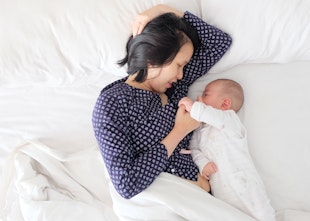It is extremely important to contact your GP or local emergency department if you are concerned about your child’s health but knowledge is definitely power when you are a parent. This post aims to explain some of the differences between the various kinds of coughs that our children experience.
It is extremely important to contact your GP or local emergency department if you are concerned about your child’s health but knowledge is definitely power when you are a parent. This post aims to explain some of the differences between the various kinds of coughs that our children experience.
Coughs can strike at any time of the year. They are not only associated with the colder weather. The main reason why your child develops a cough is due to some kind of a virus. They are particularly common when your child attends a crèche or playschool and it is believed that your child will experience between 6-10 viral infections every single year. Some you will notice and others will come and go without many obvious symptoms. Coughs tend to be at their very worst at night time or in the morning. The position of lying down exacerbates a cough meaning that the worst symptom is actually fatigue.
Here are some of the most common kinds of cough and how they tend to be treated:
Croup
This kind of cough sounds like a harsh high-pitched bark. It is extremely common in children under age five. It starts with symptoms of a cold and then leads to swelling of the upper airways. This is what causes the loud barking cough. In a lot of cases, Croup will run its course and go away without the need for any treatment other than plenty of fluids and rest. In some cases, however, steroids are prescribed to reduce the swelling. Some children are prone to this virus and get it over and over again.
Asthma
Asthma is a persistent cough in children. It tends to be accompanied by other symptoms such as wheezing. It causes rapid breathing and your child may appear to work very hard to breathe. In some cases, it is triggered only be exercise and in more severe cases asthma attacks can be frequent. A treatment plan is required for asthma and in many cases, an inhaler is prescribed.
Whooping Cough
Whooping cough is a cough caused by a bacterial infection. The coughing comes in spasms and can lead to vomiting. In very small babies this infection can be extremely serious as the baby may struggle to catch their breath between fits of coughing. These babies may require hospital attention as there is a risk of severe complications. This cough can last for several weeks and is contagious. Antibiotics can lessen the symptoms and the whooping cough vaccine is very effective.
Bronchiolitis
This cough occurs in babies under the age of twelve months and it is the result of a viral infection. It tends to be coupled with cold symptoms and a high temperature. The baby develops fast and noisy breathing and struggles to feed effectively. As it is a viral infection antibiotics will not clear up the infection. If the baby becomes very sick and lethargic they may require oxygen from the hospital. The infection usually lasts between 7-10 days.
Pneumonia
Pneumonia is an infection of the lungs. The air sacs in the lungs fill with fluid which makes it hard for oxygen to reach the bloodstream. The symptoms can be very fast breathing and wheezing sounds, a high temperature, chest pain and loss of appetite. Pneumonia is a virus that usually starts with a sore throat. Your doctor will make a diagnosis based on a physical exam of your child. In most cases, Pneumonia is a virus and will therefore not require antibiotics but there can be strains which are bacterial and will require them to clear it up.







